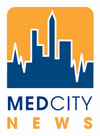
When Boston Scientific Corp. (NYSE:BSX) hosted an investors meeting in late November, its first in years, the company played Van Halen’s “Right Now” and Jesus Jones’ “Right Here, Right Now” during breaks in its presentation.
But one Wall Street wag suggested a different song for BSX’s soundtrack.
“After sitting through the meeting, our review of what was said suggests Van Halen’s ‘Dreams’ would have been a more apt pick,” Matthew Dodds, a Citigroup analyst, wrote in a research report. “We just don’t envision a scenario of Boston’s combination of revenue acceleration while aggressively cutting costs as viable.”

Dodds’ reaction was typical — analysts weren’t impressed with the copany’s scenario. And now that BSX is reportedly dropping plans to sell its neuromodulation unit, the company’s growth plans are looking even more unrealistic.
During the investors presentation, Boston Scientific told analysts it could boost earnings-per-share growth by 11 percent to 12 percent annually through 2015, mostly through aggressive cost cutting. The Natick, Mass.-based company also said it would use $7 billion in projected free cash flow to pay down debt, pursue acquisitions and reserve funds against legal and tax liabilities.
Wall Street, though, wondered how BSX could afford to do all of that, especially with sluggish sales growth.
“We question how Boston can acquire growth assets and invest to maintain leadership positions with a depressed balance sheet vs. peers and a stated objective to maintain absolute levels of [research and development] spend,” David Lewis, an analyst with Morgan Stanley, wrote in a research report. “Competition for attractive growth assets is likely to be intense, and competitors continue to invest heavily in internal development programs.”
A sale of the pain management unit might have alleviated some of that pressure. In October, BSX said it would sell its neurovascular unit to Stryker Corp. (NYSE:SYK) for $1.5 billion. Analysts had also expected BSX to fetch $1.5 billion to $2 billion for neuromodulation, where it lags far behind competitors Fridley, Minn.-based Medtronic Inc. (NYSE:MDT) and St. Jude Medical Inc. (NYSE:STJ), based in Little Canada, Minn.
But Boston Scientific’s abandonment of its efforts to ditch the pain management business this week, because suitors weren’t willing pay what it wanted, could be a big blow to BSX’s long-term plans. $1.5 billion to $2 billion is roughly a year’s worth of free cash flow over the next five years, according to the company’s projections. The company may not be able to rely on boosting cash flow through sales growth; analysts say BSX’s pipeline looks thin. Recent acquisitions like its $193.5 million decision to buy Asthmatx Inc., a maker of catheter-based systems to treat asthma, and $386 million bet on heart valve maker Sadra Medical Inc. aren’t likely to yield any short term benefits to revenue.
“BSX talked up the opportunity in several cardiovascular, neuromodulation, and general surgery markets, but we believe it is sorely lacking in near-term products that can move the needle vs. the competition,” Citigroup’s Dodds wrote. “BSX has made some effort to build out its pipeline with the recent deals for Asthmatx and Sadra, but both deals will take a while to have an impact and the internal programs had little to highlight in the way of clinical [trials].”
Perhaps Bon Jovi’s “Living on a Prayer” might be more apropos for the next Boston Scientific investors presentation.

